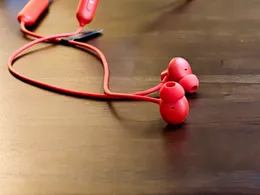
OnePlus Nord 5 follows its north star and attains a deluxe upgrade
OnePlus hits home with another affordable flagship, bringing premium features to the value-for-money Nord 5.

ROG Strix G16 (2025) G615LR Review: Built for smooth sailing
The ROG Strix G16 (2025) packs the deadly combo of Core Ultra 9 200 and RTX 5070, but thermal efficiency is where its true strength lies.

AI Plagiarism has hit a new low, and Myntra might be on its list
The Indian clothing brand, Vraj: Bhoomi, has shared how Myntra is responsible for plagiarizing and even using model images via AI, but what has technology really stooped to?

New OnePlus Bullets Wireless Z3 deliver oomph, and a hint of convenience
The new OnePlus Bullets Wireless Z3 neckband style earbuds offer the same good sound as last year's Z2, but the extended support for app-based controls and EQ presets make them even more exciting at a very appealing price.

OnePlus Pad 3 is finally the Android tablet I can use for work
OnePlus' upgraded Pad 3 is faster, bigger, and better in almost every sense. But its accessories truly bring out the best in it.
Google Search could be smothering your creativity
A Carnegie Mellon University study reveals starting your brainstorming process with Google can be detrimental to the group's creativity.
Teams relying much on search engines often produced inundatingly same, less original ideas due to a cognitive bias called "fixation effect," where seeing popular answers converges our thought process instead of diverging it.

While individuals weren't necessarily dumber with Google, groups of Google users seemed to get stuck in a rut, often coming up with the same common ideas, sometimes even in the same order! Talk about a copy-and-paste creativity crisis.
"This appears to be due to the fact that Google users came up with the same common answers, often in the same order, as they relied on Google, while non-Google users came up with more distinct answers," explained lead author Danny Oppenheimer.
EDITORS' PICKS



